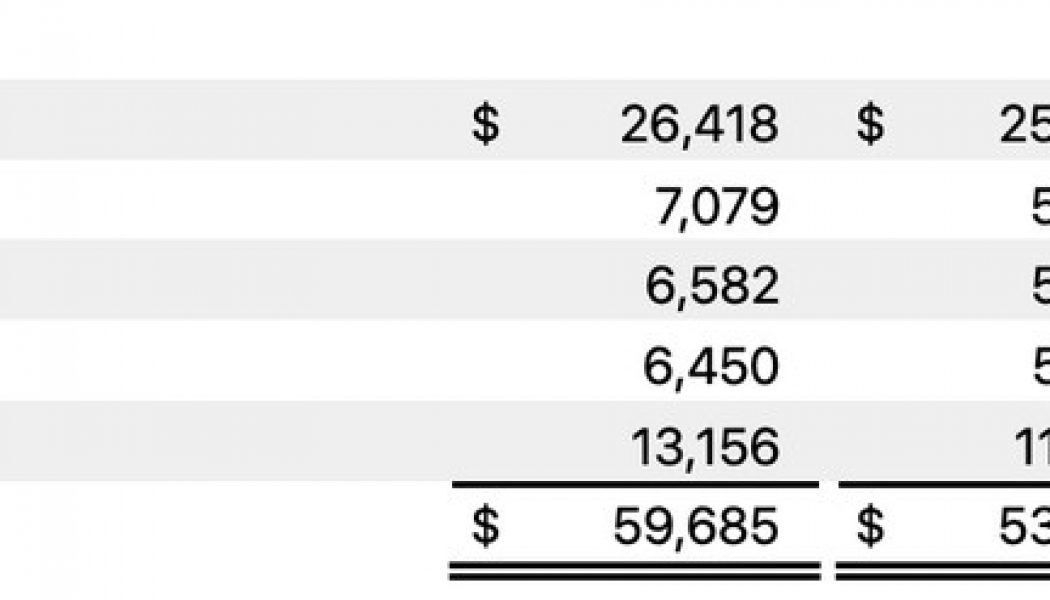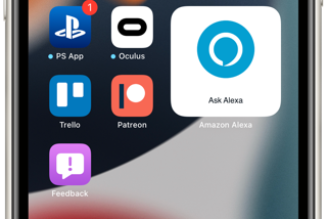Apple today reported extremely strong third quarter earnings, offering another look at how the company is shaking off the toll the COVID-19 pandemic is taking on its business. Analysts had been expecting around $52.3 billion in revenue and earnings per share of $2.07, but Apple crushed those predictions with $59.7 billion in revenue — up 11 percent from last year’s third quarter — and EPS of $2.58, up 18 percent. The company announced a four-for-one stock split alongside the earnings, saying that “each Apple shareholder of record at the close of business on August 24th, 2020 will receive three additional shares for every share held on the record date.”
As has become the norm, Apple’s services and wearables divisions performed strongly. But the iPhone, Mac, and iPad all fared well during Q3 as well. With the updated 13-inch MacBook Pro released in the spring, the entire MacBook line has now made the switch to more reliable keyboards and left the controversial “butterfly mechanism” design behind. That has likely only helped the already-high demand for computers and tablets as remote work continues on for so many people.
:no_upscale()/cdn.vox-cdn.com/uploads/chorus_asset/file/20909203/Screen_Shot_2020_07_30_at_4.46.24_PM.png)
This was the first quarter to factor in sales of the second-generation iPhone SE, which is Apple’s cheapest iPhone with a starting price of $399. iPhone sales were particularly slow for the first three weeks of April, according to a Bloomberg interview with Apple CEO Tim Cook, but picked up afterward.
The company is expected to announced a new lineup of “iPhone 12” devices in early fall, including one with a 5.4-inch display that should appeal to consumers looking for a smaller-sized phone with the same all-screen design as the larger ones. It’s rumored that this will be the year that Apple brings 5G to some iPhones, though there have been reports that 5G models might ship later than the usual September release window.
Other products rumored for release this year or early next year include premium Apple-branded headphones, a redesigned iMac, the first Macs running Apple’s own silicon, a Tile-like tracking device, and more. Apple has already revealed many of the new software features coming to iOS 14, iPadOS 14, macOS Big Sur, watchOS, and tvOS, with public betas now available for most of the updates.
Apple declined to provide earnings guidance for this quarter due to continued uncertainty from the COVID-19 pandemic, and it’s not doing so for the fourth quarter either. After briefly reopening them to customers, Apple has had to reclose a number of its retail stores in the United States as COVID-19 cases spike across many states. Stores that remain open are operating at limited capacity and require temperature checks before people can enter. Both employees and shoppers must wear face masks.
:no_upscale()/cdn.vox-cdn.com/uploads/chorus_asset/file/20909297/1253881421.jpg.jpg)
The pandemic has also pushed back Apple’s original time frame for returning to work at its offices. The company has “kicked the time period” back to early next year, Cook told Bloomberg.
Apple’s earnings report comes one day after Cook testified alongside fellow Big Tech executives Jeff Bezos, Sundar Pichai, and Mark Zuckerberg as lawmakers continue to investigate potential antitrust violations and whether the massive companies now wield too much power. In Cook’s case, the House Judiciary Committee mainly pressed Apple’s chief executive on how the company runs the App Store and the subscription fees it collects from developers. “We apply the rules to all developers evenly,” Cook said, though documents obtained by the committee suggest companies like Amazon have gotten special treatment.
But that was yesterday. Cook had a more triumphant tone today. “In uncertain times, this performance is a testament to the important role our products play in our customers’ lives and to Apple’s relentless innovation,” he said in the earnings press release.










